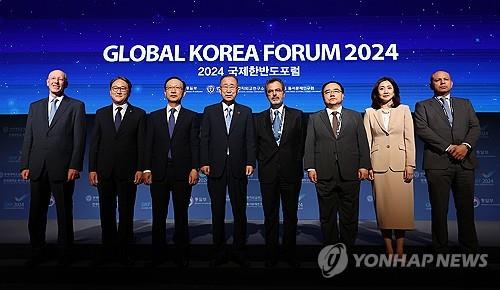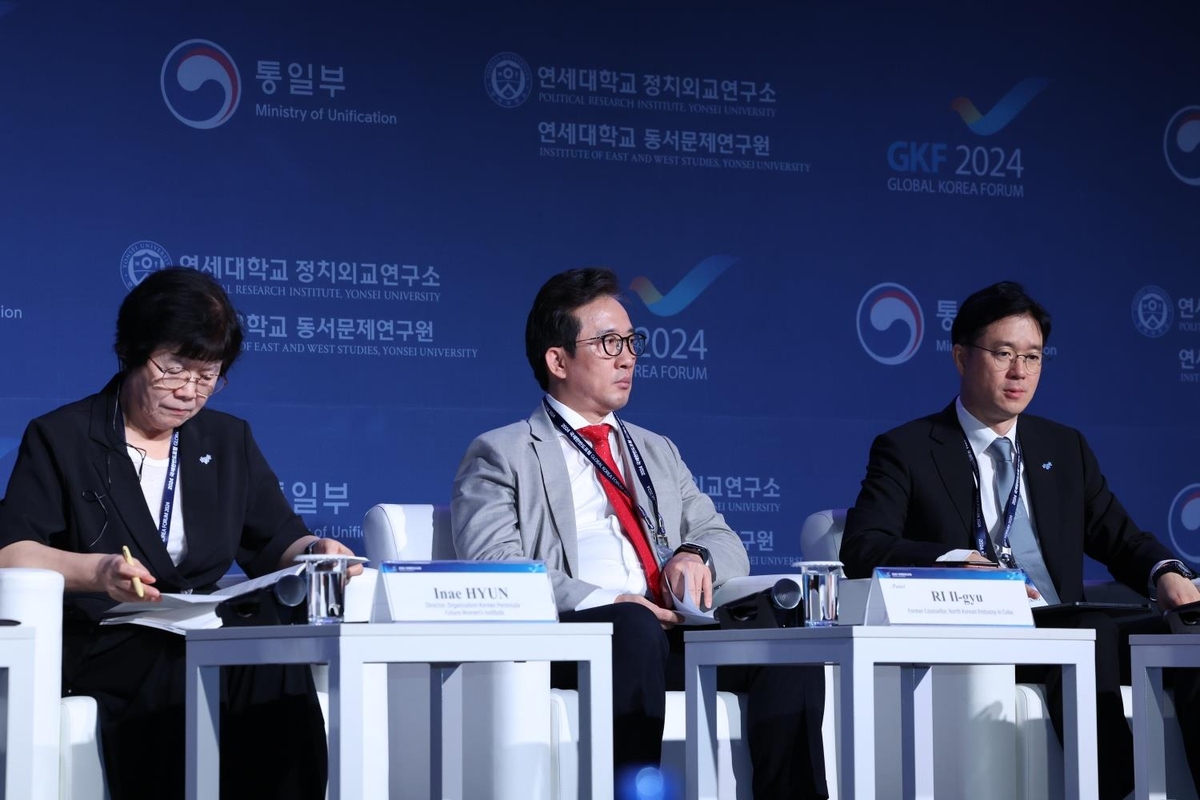- California Assembly OKs highest minimum wage in nation
- S. Korea unveils first graphic cigarette warnings
- US joins with South Korea, Japan in bid to deter North Korea
- LPGA golfer Chun In-gee finally back in action
- S. Korea won’t be top seed in final World Cup qualification round
- US men’s soccer misses 2nd straight Olympics
- US back on track in qualifying with 4-0 win over Guatemala
- High-intensity workout injuries spawn cottage industry
- CDC expands range of Zika mosquitoes into parts of Northeast
- Who knew? ‘The Walking Dead’ is helping families connect
More N. Korean elites disillusioned with Kim Jong-un regime: ex-N.K. diplomat
More North Korean elites are “disillusioned” with the Kim Jong-un regime, as they feel anxious on concerns that any small mishap could deprive them of their lives under his leadership, a former North Korean diplomat said Tuesday.
Ri Il-gyu, a former counselor of political affairs at the North Korean Embassy in Cuba, made the remark in a session during the Global Korea Forum (GKF), a global forum hosted by the unification ministry and designed to garner international support for South Korea’s bid for peaceful unification.
“Perception by the North’s elite group toward the regime has changed a lot,” Ri said. “They are disillusioned with Kim’s impromptu behaviors. Even with doing something wrong a little bit, North Korea shoots them to death.”
He also said Kim’s “war on corruption” has only led to bribery becoming a more prevalent survival tactic among high-ranking North Korean officials.
“North Korean people do not have any expectations for the regime. They believe that what enables them to survive is markets, not the (ruling Workers’) Party,” Ri said.
Despite growing skepticism about the regime, Ri claimed North Koreans cannot easily stand up against it due to the country’s cobweb-like surveillance system and a reign of terror.

Ri, a seasoned North Korean diplomat known for his role in overseeing Cuban affairs, defected to South Korea with his family in November of last year.
He also suggested that leveraging China’s position could be beneficial for South Korea, especially since China seems “uncomfortable” with the close military ties between North Korea and Russia.
“When it comes to Russia, we must persistently persuade them on who would be a more realistic partner between South Korea and North Korea,” Ri said.
On North Korea’s silence about Seoul’s new unification doctrine, the former diplomat said the North probably views “complete disregard” as the best response, as making any response amounts to promoting South Korea’s unification vision to North Korean people.
The forum aligns with a new unification doctrine announced by President Yoon Suk Yeol last month, which focuses on expanding North Koreans’ access to external information and proposes establishing an official dialogue channel between the two Koreas to discuss various issues.

Meanwhile, in a distributed release at the forum, Ri referred to Kim Jong-un’s daughter seen in public as “Ju-ye” not as her commonly known name of “Ju-ae,” without disclosing where he has got the information.
After a trip to North Korea in 2013, retired NBA star Dennis Rodman said he spent time with the leader’s family in Pyongyang and held Kim’s baby girl, named Ju-ae.
But North Korea’s state media have yet to officially disclose the daughter’s name, only calling her the “respected” daughter or the “beloved” one. South Korea’s spy agency said in January that it sees Kim’s daughter as his “most likely successor.”
In a keynote speech, former U.N. Secretary-General Ban Ki-moon said South Korea needs to continuously “persuade” China to understand that the two Koreas’ unification will not only contribute to global peace but also serve its own interests.
“It is strategically vital to convince China and Japan that unification will significantly contribute to global peace and will be beneficial for them as well,” Ban said in his keynote speech.
Ban also emphasized the need for South Korean officials to persuade the Chinese government that the South Korea-U.S. alliance is not adversarial and will ultimately benefit peace and stability in the region.
“Going forward, we must present a future vision for the South Korea-U.S. alliance that encompasses diplomacy, military cooperation and the values of liberal democracy,” he added.












